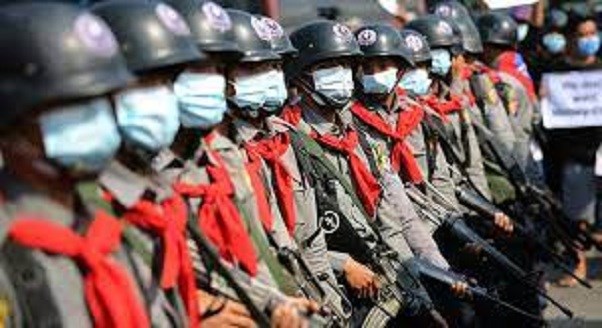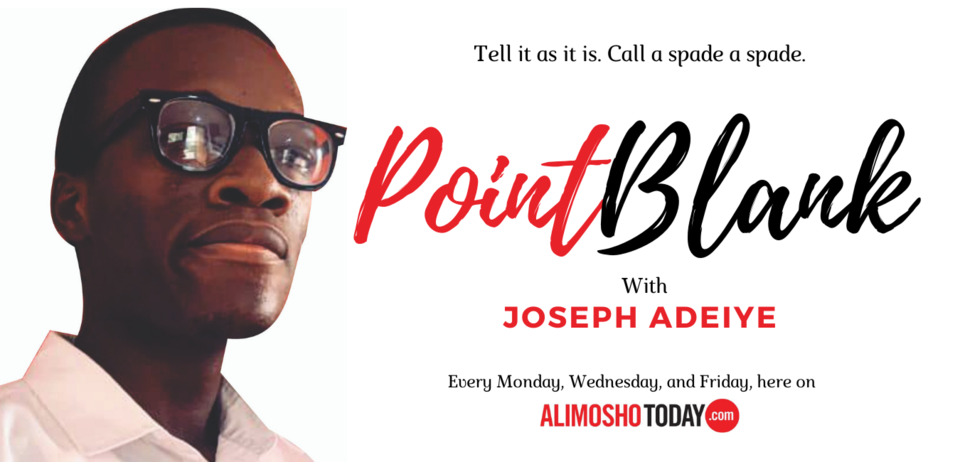IT has been almost three decades since Nigeria confirmed a coup d’état within the corridors of power. The distant memory of what the country was in such times has perhaps made it difficult for some Nigerians to understand how bad an idea it is to wish for a change in the form of government through a military coup today. In our bid to escape the hot frying pan, we must be careful not to dive into fire.
Nigeria has matured to a certain age, despite our current challenges, that a military government is ill-equipped to steer the wheels of the country. The tribulations of the country are obviously adding to the desperation of many Nigerian citizens. Some have even publicly declared the country a house on fire on course for destruction in six months time. But can a military coup fix the Nigerian problem by truncating our democracy today?
 One of the many misconceptions of coup-talkers is that if the military took control of Nigeria today the country will be safe tomorrow. This idea is gaining much ground in public discourse because of our burgeoning insecurity challenges. The reality remains that different batches of school pupils are kidnapped more frequently in a trend of school-targeted abductions. We have woefully failed to suppress banditry so much that an international paper referred to Nigeria as a country of bandits. Communal clashes still spring up here and there, involving herders and farmers. The reason a coup will not take all our insecurities away overnight, however, is the fact that the military and security forces of the country are also casualties of banditry, insurgency, and terrorism.
One of the many misconceptions of coup-talkers is that if the military took control of Nigeria today the country will be safe tomorrow. This idea is gaining much ground in public discourse because of our burgeoning insecurity challenges. The reality remains that different batches of school pupils are kidnapped more frequently in a trend of school-targeted abductions. We have woefully failed to suppress banditry so much that an international paper referred to Nigeria as a country of bandits. Communal clashes still spring up here and there, involving herders and farmers. The reason a coup will not take all our insecurities away overnight, however, is the fact that the military and security forces of the country are also casualties of banditry, insurgency, and terrorism.Men of the armed forces and the Nigerian Police have been killed by the dozen in violent attacks this year, while criminals have grown brave enough to demolish police stations without much resistance. Boko Haram is managing to deal decisive blows on our military forces and have even managed to gain control of some towns in the country. A military government will probably face the same issue of insecurity since the leadership of our armed forces remain rattled by these criminals and terrorists right now, or they will make worse executive decisions because Generals and Admirals are ill-prepared to manage government previously run via a democratic system. Military bases are not even as safe as they ought to be and even Kaduna State, which has the highest concentration of elite military institutions in the country, is one of the states most affected by kidnappings and banditry in 2021.
Green fatigues do not automatically translate to good governance. On the contrary, by virtue of Nigeria’s history, military governments have heralded some of the most repressive and corrupt dispensations with far-reaching socioeconomic downturns. A military takeover should not be desirable, if for nothing else, for the memory of the legacies of IBB and Abacha. We will be risking authoritarian governments with no viable economic plan to save us from eventual collapse and zero respect for fundamental human rights.
Beyond our desires for, or against a military government, the military in Nigeria will not take action against the current Nigerian government. The armed forces of Nigeria have expressed their disinterest in overthrowing a civilian government and have shown unwavering support for our democracy with lofty declarations. In fact, the military’s loyalty and support for Nigerian democracy is a cover cloth for its own selfish interests. The upper echelons of the armed forces are no different from the political elite themselves. Nigerian soldiers have once tasted absolute power and they held on to this power for the fruits of absolute corruption. The trend continued even after the military government gave way to a civilian government, military chiefs and former Generals got away with the billions they siphoned in the advent of the fourth republic.
Today, military officials do not have to be at the helm of affairs in government to obtain fat bank accounts so they would rather earn their dough on the low. This dough will be derived oftentimes from bits of the several billions of Naira allocated to this endless war on the insurgency. With this kind of compensation, why would these high ranking officers take the responsibility of the country on themselves? This is why, even though the average Nigerian citizen is frustrated with our current situation as a country, a military government is not a realistic solution to the problem. It might be deeply flawed, but a coup has got nothing to do with our democracy at this stage.


.png;w=120;h=80;mode=crop)
